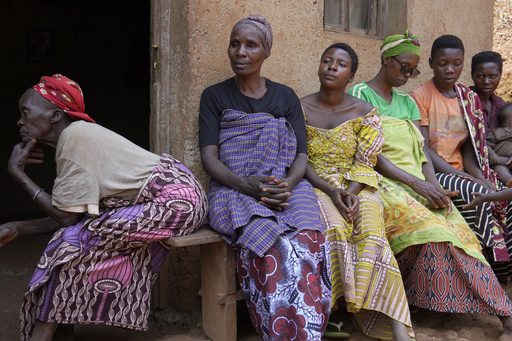
NGOZI, Burundi — The embrace between two women seemed to stretch on indefinitely. An exuberant 85-year-old welcomed a younger woman, whom she hadn’t seen in several months, with a chant of traditional questions that echoed the ancient yodeling style of her ancestors.
“How have you been? How’s your husband? How are the children? Have your cows been well? And are you on friendly terms with your neighbors?” she sang.
Prudencienne Namukobwa paused in her melodic questioning to give room for the younger woman’s rhythmic responses, a pattern she has perfected over the years.
“Yes,” Emelyne Nzeyimana replied repeatedly in Kirundi, the local dialect.
Onlookers were captivated, many witnessing the age-old custom known as akazehe for the first time. This traditional musical greeting is exclusively performed by women during various celebrations.
However, akazehe is at risk of fading into obscurity. Cultural advocates, educators, and other commentators assert that this cherished tradition deserves protection. They highlight challenges posed by public health measures that discourage close physical interactions during health crises, alongside a failure to promote akazehe among younger generations.
In fact, many young Burundians struggle to comprehend what akazehe is and even fewer can perform it.
“There was a time when it was sadly neglected,” noted Sandrine Kitonze, a cultural advisor in Ngozi province.
She emphasized that akazehe and its prolonged embraces convey deep affection between individuals.
Academics have pointed out that akazehe has the potential to bolster social bonds in Burundi, a nation that has transitioned into relative peace following a tumultuous civil conflict and ensuing political unrest.
Annonciate Baragahorana, a teacher in the province of Bujumbura, expressed her astonishment at this unique greeting style during her childhood visits to areas where akazehe was alive and well.
“Women from the central plateau regions often embraced you while bestowing blessings and affection during our holiday visits,” she reminisced with a laugh. “The embrace was so lengthy that I sometimes wished it would come to an end, even if the words were delightful.”
She worries that the warmth in social relationships may dissipate among Burundians, particularly during times of concern regarding contagious diseases like COVID-19 and Mpox.
“People now prefer to greet from afar, fearing contamination,” Baragahorana explained. “Such practices will significantly contribute to the decline of akazehe.”
In the hills of Ngozi, however, some locals still hold onto the tradition, and performers like Namukobwa continue to wow those around her.
Living in a worn-down house nestled on a lush hillside, she was outside one morning when she spotted Nzeyimana, the daughter of a former neighbor visiting her. Despite her mobility issues, Namukobwa rose to greet Nzeyimana as if she were her own daughter.
“I felt that the love she had for me since my childhood still lingers,” Nzeyimana, a broadcaster in Ngozi, recalled. “This means I am still her daughter.”
The ritual of akazehe can resemble a quest for harmony, as participants weave their voices together in unison. While many questions during the exchange may be conventional, some can catch one off guard. Nzeyimana later expressed her initial anxiety over facing an unexpected question but was relieved when none arose.
Serena Facci, an Italian academic at the University of Rome Tor Vergata, who has studied akazehe, noted that even in 1993 during her research, “this beautiful female greeting wasn’t commonplace in everyday life.” She suggested that its decline may be due to evolving societal norms and lifestyles.
Isaac Nikobiba, an anthropologist in Bujumbura, stressed the importance of preserving unique customs like akazehe, arguing they safeguard family relationships. He explained that within communities practicing akazehe, women could convey signs of distress at home to support networks from extended families.
He likened the potential loss of akazehe to broader cultural erosion brought on by modernization.
“Traditionally, before starting a family, a girl would receive guidance from her paternal aunt, who would inquire after a while, ‘If you notice any issues at home, you must tell me,’” he elaborated. “Without having someone to confide in regarding personal matters, she may find herself in a distressing psychological environment.”
Among the small circle of women gathered to observe Namukobwa’s greeting to Nzeyimana was Floride Ntakirutimana, who grew up in a farming community devoid of akazehe performances, only learning of it through radio.
The beautifully executed exchange stirred in her a desire to learn this evocative tradition herself.
“This experience uplifted me, and it resonated as something truly wonderful,” Ntakirutimana expressed.
